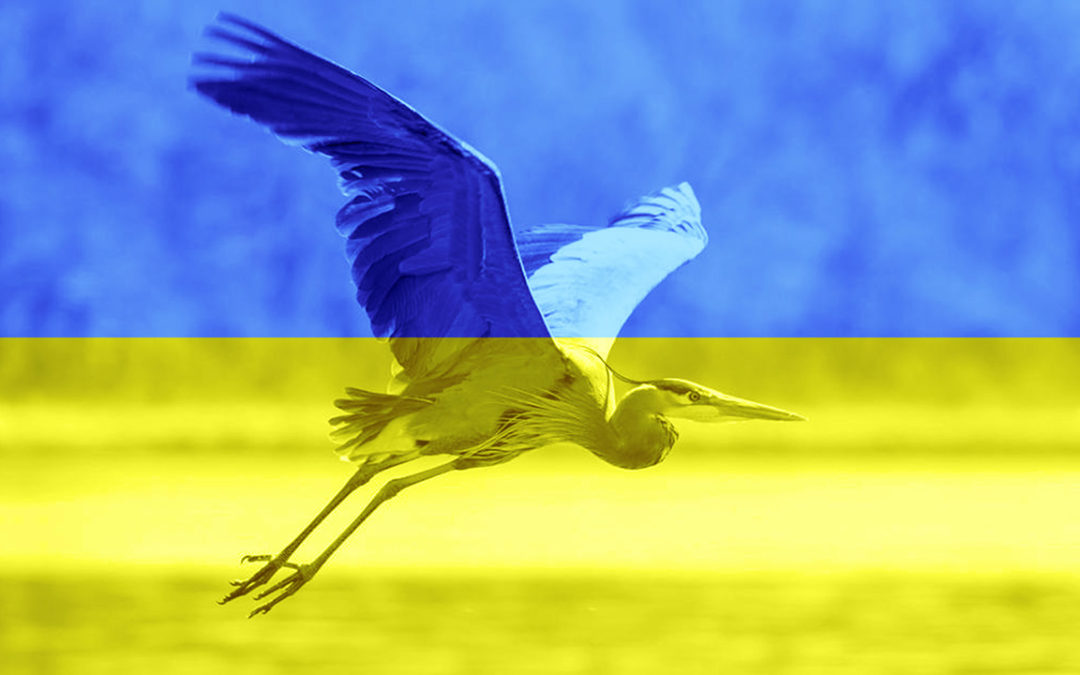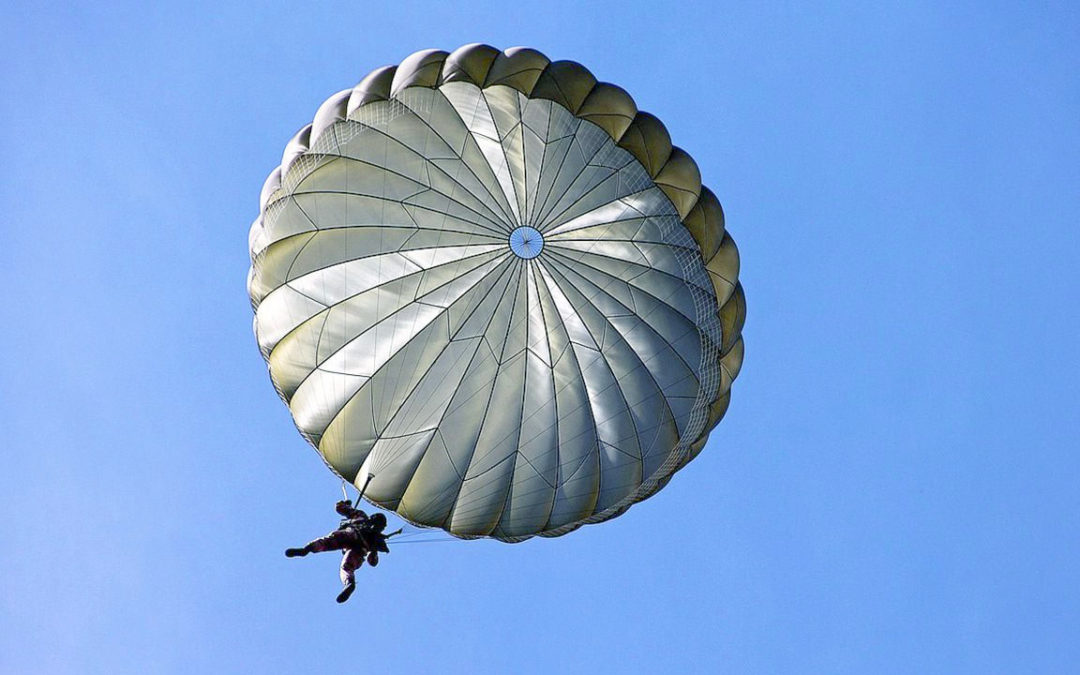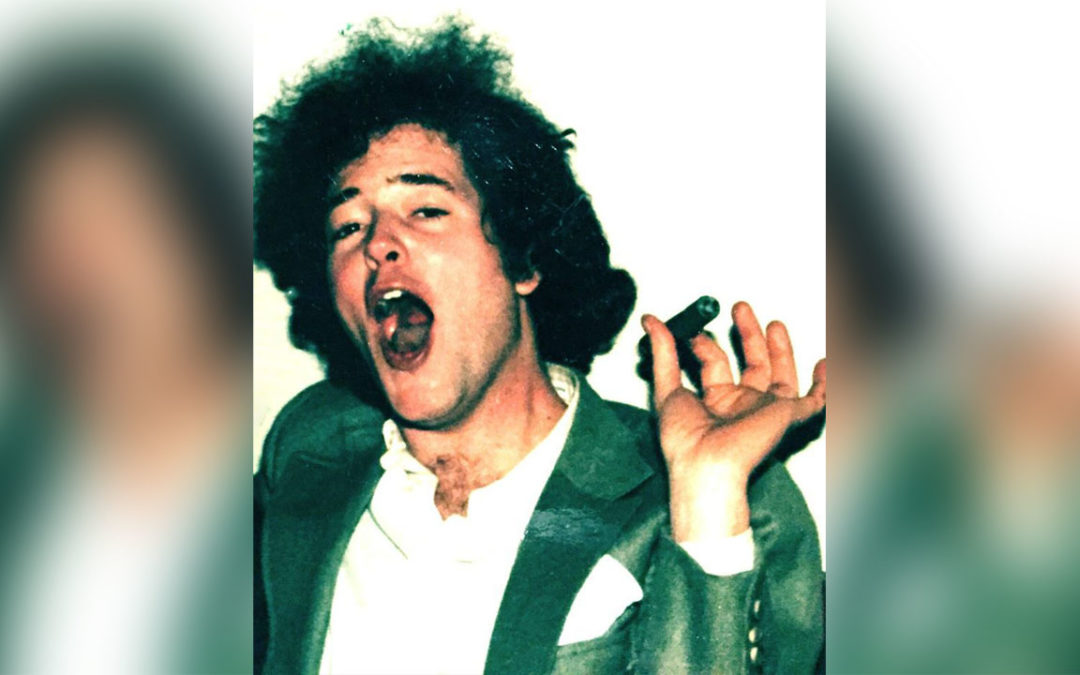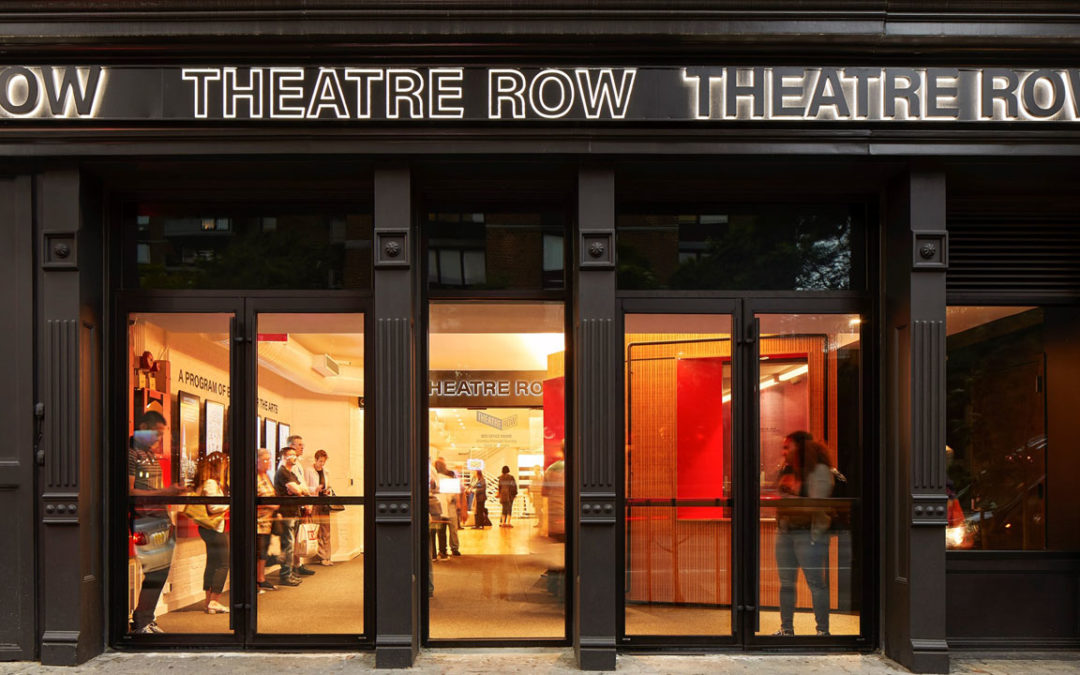
by Robert Bowie, Jr. | Mar 15, 2022 | Featured, Personal, Travel
Over five years ago at the suggestion of a theater producer I started this blog. The idea was to build an audience by writing about my efforts to become a playwright as a second career after others my age had surrendered to golf.
In October of 2018 I got off to a good start with great reviews for Onaje at FringeNYC, but then in March of 2020 Covid shut the NYC theaters and I have been forced to report on other subjects as I have waited for the theaters to reopen.
But something wonderful has happened because of this misfortune. It has become another wonderful wake up call.
Two days ago, I found out that my friend Krzysztof saved a family last week at the Ukraine border of Poland.
Over ten years ago, I met Krzysztof at a Harvard Alumni Association gathering in Berlin. He was sitting in the hotel bar waiting for our bus to take us to a reception. I think it was the first alumni meeting he had ever attended. He didn’t know it, but I would be his friend before he was mine.
He stood out because he had all the crimson alumni materials and had decorated himself with a Polish flag as he held a drink in one hand and smoked a European cigarette with the other. I joined him, and to start a conversation I asked him what had brought him to Harvard.
He told me that after high school in Poland he had traveled as an immigrant to New York and was working in a Polish deli when a Harvard business school graduate came in to buy a sandwich and was talking about how wonderful Harvard business school had been for her.
Krzysztof had been enchanted by what he had heard but buried the idea as an impossible dream. Still, he did decide to go up to Boston and crossed the bridge over the Charles River to at least look at the Business School. He made up his mind, he said, and to memorialize his commitment he dropped a coin into the river from the bridge before he took the train back to NYC.
Krzysztof has a mischievous sense of humor and is one of the most gregarious fun- loving and generous people I have ever met but under that levity he is Incredibly determined.
He decided to try to get into College in New York and after he did well,while still working and, after he graduated, he applied to the Business School. He got in. Loved it and returned to Poland and had a very lucrative business career.
We rode the bus together to the reception and continue talking side-by-side during dinner. We were not friends yet.
After his success in Poland he decided to bring young Polish students to Harvard and other great American universities in order that his countrymen and women could experience the joy and opportunities he had received from his own experience.
Since then, he has been remarkably successful over the last decade. He has set up scholarships, written introductions, encouraged highly talented Polish students to apply, and encouraged America’s best universities to accept them. He has succeeded in bringing hundreds of these students to study in our country.
But that is not the reason I became his friend. Later that night we drank vodka and he introduced me to the joy of pigs’ feet. After the pigs’ feet and more vodka I happened to think it was a good idea to agree that whomever’s daughter was married first the other of us would attend the wedding. It was pretty late at night.
My daughter married years ago and he received an invitation from me. According to my daughter, he was the life of the party, and I’m sure he was because I had gone home well before that party ended.
My daughter remembered him well, and last week she asked me if she could contact him to ask his advice on how she could help a friend of hers and her husband and their two small children who were in Ukraine, who were walking to the border of Poland.
Krzysztof immediately responded and committed to bringing the family across the border himself, finding them, getting them a hotel room, as well as medical treatment for their young daughter, who had become very sick as they had walked to Poland, all at his expense. I’m never 100 percent sure but I’m sort of convinced that along with his profound kindness it is his mischievous side that ignites his generosity.
Krzysztof was true to form because be was Krzysztof.
The thing I often tend to forget is, in a world of constant tragedy there are people who, for no reason other than what they find in their souls, are kind to one another. They are better than I am. But I am nurtured by them as true friends.
When I heard the story about Krzysztof I was pondering what to write about this week. It occurred to me that Krzysztof is like the friends with whom I have been reacquainted, or new friends I have yet to meet, as this blog has gone off track. All these hardships have brought us together in an odd existential way.
It is wonderful when things go off track in order to get us back on track. It occurs to me now, I’m not really all that sure Krzysztof has a daughter.

by Robert Bowie, Jr. | Mar 8, 2022 | Poetry, Politics
The delicate interdependence that is nature also protects democracies. But it is difficult to recreate once eradicated.
The Heron
A tall shadow controls my autumn pond.
It moves on long legs and will stare and wait.
After the late March ice had come and gone
And the exchanged songs of the frogs that mate,
The lily pads rise through the clear water
To shelter the colonies of black tadpoles
That are born as eggs, like pupiled eyes, pure,
And, like the rest here, uncompromising souls.
The summer heat reveals the baby fish
Spawned by the survivors of last winter.
By August it is like my winter wish:
Blooming like some Eden, ready to enter.
The heron knows nothing of what I mean.
By noon it will have picked the pond all clean.
“Week 38” from An Accidental Diary
(Available now on Amazon in paperback and Kindle.)

by Robert Bowie, Jr. | Mar 1, 2022 | Featured, Personal
Last week, I posted about my first parachute jump with my wonderful and crazy lost friend Haven.
But here is the rest of the story…
About ten years after my jumps with Haven, I told the story during lunch at the law firm where I worked.
As I finished, a few members of the staff and two associates unexpectedly got up and left. They came back about 10 minutes later with an announcement.
There was a parachute place on the Eastern shore of Maryland just across the Bay Bridge, about two hours away and, if I wasn’t a coward or just a B.S. storyteller, they would go next Saturday with me. But only if I would do the first jump.
That night, my wife just shook her head, looked at me in disbelief and said, “At least you don’t have any children.”
Because of my luncheon bravado, I was now a fool following myself down a path I did not want to follow… but it got worse.
The following Saturday, eight of us piled into two cars and drove down to “Parachutes Are Fun,” which looked a lot different than the professional business in Massachusetts where I first jumped.
Parachutes Are Fun featured one single engine plane with all the seats removed except for the pilot’s, a barn, and a school bus that had no tires and was up on cinder blocks.
As if launched from the bus, an overly excited prematurely-aged young man with wild blond hair and dilated pupils approached us. He looked like a stunt double for the old guy in “Back to the Future.” He held a helmet in one hand and a lit cigarette in the other and couldn’t stop welcoming us even before we got out of the car.
At the same time, the owner came out of the barn, dressed in a bombardier’s jacket with Parachutes Are Fun stenciled on the back, carrying a walkie-talkie. Behind him was as an assistant leading four people with parachutes on their backs to the little plane as a pilot in blue jeans, a baseball hat and sneakers was entering the cockpit of the plane.
This was way too informal! This was not good.
It was too late to change directions and forever be the coward who turned around and for once in his life had been responsible.
We were divided into two groups of four based solely on the car in which we came, and I was volunteered to be in the group that would jump first.
The character from the bus enthusiastically showed us how he packed the parachutes and couldn’t stop promoting as he did. He was excited to tell us he lived in the bus and loved his job so much that he took his raises and bonuses in free jumps.
Our new friend who lived in the bus took off with every plane and was responsible for everything from our chutes being packed properly to cursory instructions about the emergency chute if the primary shoot “perhaps” didn’t open, as well as coordinating the open door jumps from the plane that had taken off as we had entered.
As the plane circled overhead, the owner turned on his walkie-talkie and watched as the first diver spreadeagled at about 2,500 feet above us . The chute opened and the owner barked into the walkie -talkie, “Pull your left toggle”… “Reach up and PULL YOUR LEFT TOGGLE,” and then turned to the assistant and yelled, “That son of a bitch loaded them in in the wrong order again, dammit! I’m talking to somebody who hasn’t jumped yet!”
The clueless diver was drifting, arms at his side, downwind at a high rate of speed toward northern Virginia.
The owner shoved his hand into his pocket, threw a set of car keys to the assistant and told him, “follow the bastard and pick him up where he lands!” Three jumps later, the plane taxied down the dirt road runway to the barn to reload as the jumpers landed helter-skelter in the surrounding soybean fields.
I concluded this chaos was all a very good sign.
I had strategically decided to show no fear and thus as the others saw the disorder around them, the fear would gather in them and they would decide to go home. But when I finally decided to make eye contact in preparation for supporting their decision, I was shocked to find that they didn’t have a clue because they thought all this was normal.
Before I knew it, I was on the plane sitting on the floor next to the open door as we took off. It didn’t help me to feel any better that I could hear the guy with the walkie-talkie in communication with the assistant as he tried to follow a parachute in his car, zigzagging through highways and byways while trying to keep his eye on a disappearing spot in the sky. I considered the children and family I would never have.
I am vain enough to not ride roller coasters because I don’t want that as the cause of death in my obituary. As we rose higher and higher in the sky and waited to jump, I decided I wanted to be remembered, if at all, as the fearless, selfless, courageous parachutist who had advised the other three jumpers who would jump after him that if by some chance the walkie-talkie failed they could pull the toggles to face the wind in order to drop slowly straight down rather than have their backs to the wind and end up dead in some unfamiliar state.
The following week, late one afternoon, two of the people who had jumped with me came into my office laughing and holding The Evening Sun.
They had five copies open to a series of pictures and a headline that read, “Eastern Shore’s ‘Parachutes Are Fun’ Shut Down as America’s Most Dangerous!” There were several pictures of skydivers stranded on rooftops or hanging from high tension wires, as well as a beaming portrait of our friend who had just been evicted from the bus.
Slowly, as I reach maturity and a belief in evolution, I thank God for my children and grandchildren and that their mother’s DNA has prevailed.

by Robert Bowie, Jr. | Feb 22, 2022 | Featured, Personal
When I was a kid people didn’t die, they just became invisible and didn’t answer the phone.
One of those disappearances for me was my friend Haven Story. He’s a little different, though, because after a couple of decades, I still believe he lost his phone and will return my calls when he finds it.
This scenario was always more likely because he appeared to be indestructible, like he had been gifted with nine lives.
You pretty much could always count on updates about him getting to you before he did. I heard one time when he was in New York City, he hitched a ride with the trash truck to get to his next party.
One night in the late ’60s or early ’70s, we were at a party that was wrapping up somewhere around three or four in the morning when he made a troubling but carefully considered announcement:
“I think we have run out of thrills!”
He looked around and put his smoking cigar into an empty beer bottle as he reached for a phonebook.
“But I have an idea! We’ve got to go skydiving — right now!”
About an hour away in Orange, Massachusetts, there was a skydiving operation that would open for the day somewhere around 10 o’clock in the morning.
Without hesitation, we piled into the car, drove into the night, parked in the parking lot, and slept for a few hours. We were there when it opened.
There were four of us who sat in the classroom as they explained what we would do and what would happen. The instructor laid out a parachute and packed it so it would open when the ripcord was pulled. We were also given an emergency parachute which we were told we should “punch, pull and flap like a towel to catch the air as we were falling.”
Haven was always animated in whatever he was doing. He had an endless sense of humor as he engaged with the world. He used his hands to express the enormity of his thoughts.
Wide-eyed with excitement, he was ready to jump. He wanted to be at the head of the line and first to jump as we entered the plane.
The plane was a big cargo transport plane with enough room for about 20 jumpers. We sat on benches with our ripcords buckled to the plane above our heads.
Our target was a huge sandbox 3,000 feet below. After calculating the wind speed, the plane circled so that when we jumped the wind would generally take us in the direction of the sandbox. Then we were instructed: “Jump now!”
The instructor was on the ground with a walkie-talkie. He could give us instructions after the chute opened so that we could guide ourselves with his help to our “tuck and roll,” which minimized the impact of our landing.
Haven went first out the door with an unabashed scream of joy into the free fall until his shoot opened and he reached up to the toggles to navigate his way down.
I, a little more reluctantly, jumped next and fell into the tumult of wind until my chute opened, I reached up and grabbed my toggles, and found myself involuntarily swinging my feet far above the ground, observing the earth and its fields, rooftops, and intersecting highways before focusing on the upcoming sand landing.
It was an overwhelming moment. A mix of fear and exhilaration.
I saw Haven land and tuck and roll and stand up immediately and start jumping up and down as I stretched my feet out and prepared to land.
Haven ran to meet me with his chute dragging behind him. His eyes wide his arms flailing around him. He grabbed me and said “Let’s do it again! Let’s do it again! Woooooooooow! Let’s do it again!”
We really couldn’t say no. The four of us jumped three more times that day.
I miss Haven.
I think I’ll try him on the phone one more time.

by Robert Bowie, Jr. | Feb 15, 2022 | Featured, Man Machine, Personal, Plays
About a week ago, I could take COVID-19 and its variants no longer. I couldn’t do Netflix anymore. I needed community.
A long time ago, I decided that what makes theater a community — and Netflix not — is the interactive energy of a live audience. But I had a problem now.
If I were to go to live theater now, I would be breaking a promise that I had made to myself almost two years ago.
It was during our final table read of The Grace of God & Man Machine. I had paid no attention to talk of some virus in China. Mind The Art Entertainment had committed to produce my play and soon we would be opening off-Broadway.
That night I bought a steak, a glass of wine, and a single ticket to see Hadestown on Broadway in front of a sold-out audience. Hadestown would provide me that same energy that I would soon be part of when my play would go live off-Broadway.
I was beyond happy.
The next day as I took a train back to Baltimore, I realized something terrible was happening. Pretty soon thereafter, theaters started to close and slowly an unconscious darkness opened in me.
My hope of a second life as a playwright, which I had dreamed of even as a boy, so unfairly started to drift away, week after week and then month after month. But more horrible was the loss of not being a part of live theater.
I made the promise, and over the months I hardened my resolve, that I would not go to the theater until I could be part of that collective energy. I refused to settle for some anemic second-best with half-empty seats.
So why did I nonetheless decide last Wednesday, February 9th, to go to a new play: Behold, A Negress by Jacquline E. Lawton, at Everyman Theatre in Baltimore? Why was I breaking my promise when the theaters were not fully open?
What was it, really, that I so desperately missed?
I chose to go to Everyman Theater because it always has been a theater bustling with people and when the lights went down every seat was always filled with a loyal subscription audience. I had been going there for opening nights for over 30 years. I could count on them. Somehow, they could always seem to deliver that energy.
The day before the performance I received a phone call reminding me that I must bring evidence of my COVID vacations and booster and wear a mask the entire time I was in the theater. I confirmed that I had gotten all the vaccinations and would be wearing a mask.
It seemed to foreshadow my disappointment and to add salt to the wound.
When I entered, I had my mask on and my vaccination records ready. An assistant at the door checked off my name.
I noticed the list was not extensive.
As I entered the lobby it was strangely quiet. There was no familiar group of chatting people lining up for a glass of wine before the performance.
When I entered the theater, even after social distancing there were a lot of empty seats.
I looked around and there was a pit in my stomach. This wasn’t going to work.
Before every theater performance, I have a ritual. I observe the set and the stage and try to imagine how different it will be when I look back at it after the play is over and the actors are taking their bows.
I looked at the set and then gave it a second look. I was intrigued by how perfectly it had been designed and how beautiful the high ceilings and colors were in a post-revolutionary Paris drawing room and how carefully an artist’s easel had been displayed upstage center.
The set alone had caught my attention. It felt good. I had inadvertently crossed the threshold and now I did not want to be disappointed.
The lights went down. The music picked up and the play began.
The first of the two lead characters enters in a stunning dress and without a word, in a minute, establishes her character though action alone. The second lead enters, also in a stunning period piece costume, to establish her character and the framework of the play with minimum exposition. I was hooked.
Artfully, everything was in place.
I will give nothing away other than it was a 90-minute play with two principal actors and one supporting character. The two leads reveal a multifaceted relationship through many artful twists and turns and even briefly use dance to create the excitement of creating a portrait to change the political mind of Paris.
The play itself is about the character it takes to risk one’s self and one’s art form to save the moral authority of a culture.
Wasn’t that what this theater was actually doing by performing this play at all?
Slowly, something wonderful and unexpected rose up in me as I looked back at that stage as the actors took their bows before a small but very enthusiastic standing ovation.
It was pride, and then deep respect for this theater that would protect its patrons but also not compromise the quality of any aspect of a magnificent production, despite the cost.
It was that but there was also something else.
What was this unique little community?
The actors playing the roles, the director and tech professionals creating the atmosphere, and the willing suspension of disbelief and presence of the audience?
Then I laughed.
No other community would have a catchphrase as its answer: “The show must go on.”
I had foolishly demanded the fiction of perfection and had missed the perfection of the thing itself.
I left laughing and looking forward to rejoining this little community of feral souls who create, with a live audience, the sustaining vision for its larger community, by example.
November 22, 2022–December 20, 2022 at Theater Row, 410 42d street NYC, The Grace of God & The Mind Machine will finally open.





